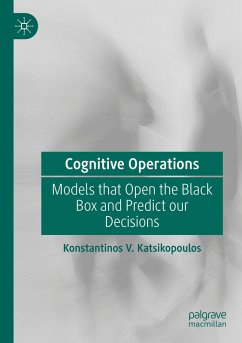This book examines how people make decisions under risk and uncertainty in operational settings and opens the black box by specifying the cognitive processes that lead to human behavior. Drawing on economics, psychology and artificial intelligence, the book provides an innovative perspective on behavioral operations. It shows how to build optimization as well as heuristic models for describing human behavior and how to compare such models on various dimensions such as predictive power and transparency, as well as discussing interventions for improving human behavior. This book will be particularly valuable to academics and practitioners who seek to select a modeling approach that suits the operational decision at hand.
Bitte wählen Sie Ihr Anliegen aus.
Rechnungen
Retourenschein anfordern
Bestellstatus
Storno








